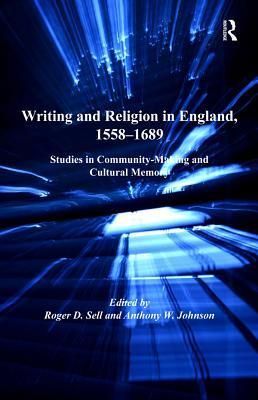
Writing and Religion in England, 1558-1689 Studies in Community-Making and Cultural Memory
The fruit of intensive collaboration among leading international specialists on the literature, religion and culture of early modern England, this volume examines the relationship between writing and religion in England from 1558, the year of the Elizabethan Settlement, up until the Act of Toleration of 1689. Throughout these studies, religious writing is broadly taken as being 'communicational' in the etymological sense: that is, as a medium which played a significant role in the creation or consolidation of communities. Some texts shaped or reinforced one particular kind of religious identity, whereas others fostered communities which cut across the religious borderlines which prevailed in other areas of social interaction. For a number of the scholars writing here, such communal differences correlate with different ways of drawing on the resources of cultural memory. The denominational spectrum covered ranges from several varieties of Dissent, through via media Anglicanism, to Laudianism and Roman Catholicism, and there are also glances towards heresy and the mid-seventeenth century's new atheism. With respect to the range of different genres examined, the volume spans the gamut from poetry, fictional prose, drama, court masque, sermons, devotional works, theological treatises, confessions of faith, church constitutions, tracts, and letters, to history-writing and translation. Arranged in roughly chronological order, Writing and Religion in England, 1558-1689 presents chapters which explore religious writing within the wider contexts of culture, ideas, attitudes, and law, as well as studies which concentrate more on the texts and readerships of particular writers. Several contributors embrace an inter-arts orientation, relating writing to liturgical ceremony, painting, music and architecture, while others opt for a stronger sociological slant, explicitly emphasizing the role of women writers and of writers from different sub-cultural backgrounds.